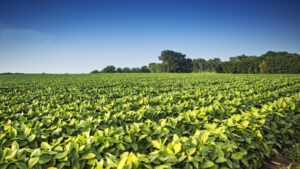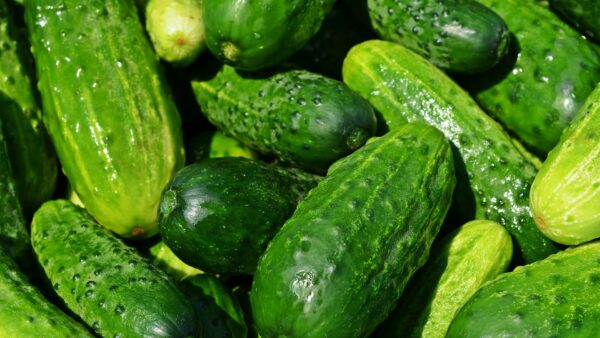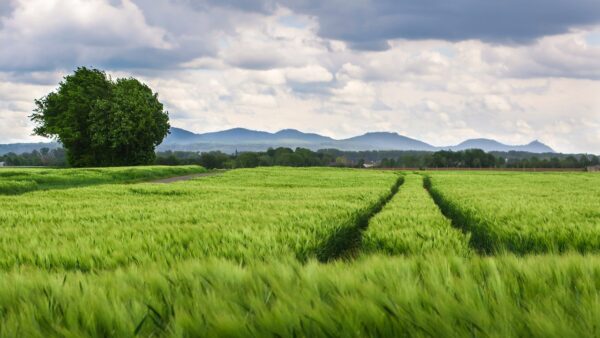The Land Use Change Initiative (LUCI), backed by the United Soybean Board (USB) in partnership with Carbon A List, is at the forefront of addressing critical inconsistencies in land use change metrics, definitions, and methodologies.
This collaborative initiative seeks to unify stakeholders across the agricultural value chain, driving progress toward more accurate and sustainable land management solutions. The United Soybean Board responded in a recent news release.
Farmers are integral to this mission, playing a vital role in safeguarding natural resources through sustainable farming practices and thoughtful conservation efforts.
“Farmers have often been left out of conversations regarding land use change and its collective impact on agriculture. We weren’t at the table, so we had to build our own table through this land use change initiative,” said Steve Reinhard, USB Chair and Ohio farmer, during his keynote at LUCI’s recent Land Use Change Summit. “North American agriculture and the half-million soybean farmers who represent 90 million acres can have a huge impact on climate solutions. Progress is a priority on our farm, not only in conservation but also in improving land management. For instance, we started with monitoring grids of 5 acres, then 2.5, and now we’re down to acre and half-acre grids for more precise input adjustments and enhanced soil health and crop productivity.”
Launched two years ago, LUCI is laser-focused on fostering collaboration and advancing sound science. The goal? A clearer understanding of land use change that accurately reflects modern farming practices, acknowledges the importance of grasslands, and ensures resilience across agricultural systems.
Farmers Leading the Charge in Sustainable Practices
LUCI has made significant strides by connecting key players across agriculture, environmental science, corporate sustainability, academia, and government to address land use challenges while preserving farmlands and natural ecosystems. Among its initiatives are:
- Farmers for Soil Health: This partnership with corn and pork commodity groups and the National Fish and Wildlife Foundation offers cost-sharing and technical support for farmers in 20 states, aiming to double cover crop acres to 30 million by 2030.
- Seed Genetics Research: Investing in seed genetics research to improve resilience against drought and flooding, while using genomics to accelerate the development of high-protein, high-quality soybean varieties.
- Biological Product Innovation: Educating farmers on the latest biological products for pest control, fertilizers, and fungicides to boost productivity sustainably.
- Communication and Outreach: Actively investing in communication efforts to translate scientific findings into actionable insights for farmers and stakeholders.
“Land use change is evolutionary, not revolutionary,” said Nancy Kavazanjian, USB director and Wisconsin farmer in the release. “Farmers are doing their best to protect the land, but change takes time. We need patience and partnership as we navigate this complex issue together. It’s not just grasslands we’re losing—urbanization, warehouses, residential developments, and renewable energy projects are all taking productive farmland.”
David Wessel, USB director and Illinois farmer, echoed this sentiment: “Currently, it’s tough for us to compete globally on production alone. A consistent land use change model would level the playing field, helping U.S. products gain market share while supporting environmental sustainability.”
LUCI Summit Builds Consensus and Drives Next Steps
In a major step forward, LUCI recently hosted its first in-person Land Use Change Summit at McDonald’s International Headquarters in Chicago. Sponsored by USB, McDonald’s, Carbon A List, and Fulton Market Group, the summit brought together nearly 100 experts from across the food and agriculture value chain. The event aimed to find common ground, set a strategic path forward, and prepare participants to take action. Keynote speaker Robert Bonnie, Under Secretary for Farm Production and Conservation at the U.S. Department of Agriculture, reinforced the critical nature of LUCI’s work.
Summit attendees identified areas of consensus, streamlined data sources, and laid the foundation for the next phase of land use change research and strategy development.
To stay updated on LUCI’s progress or get involved, visit the Land Use Change Initiative webpage, where you can access a comprehensive white paper detailing key issues and opportunities, alongside a primer report and workshop proceedings.











